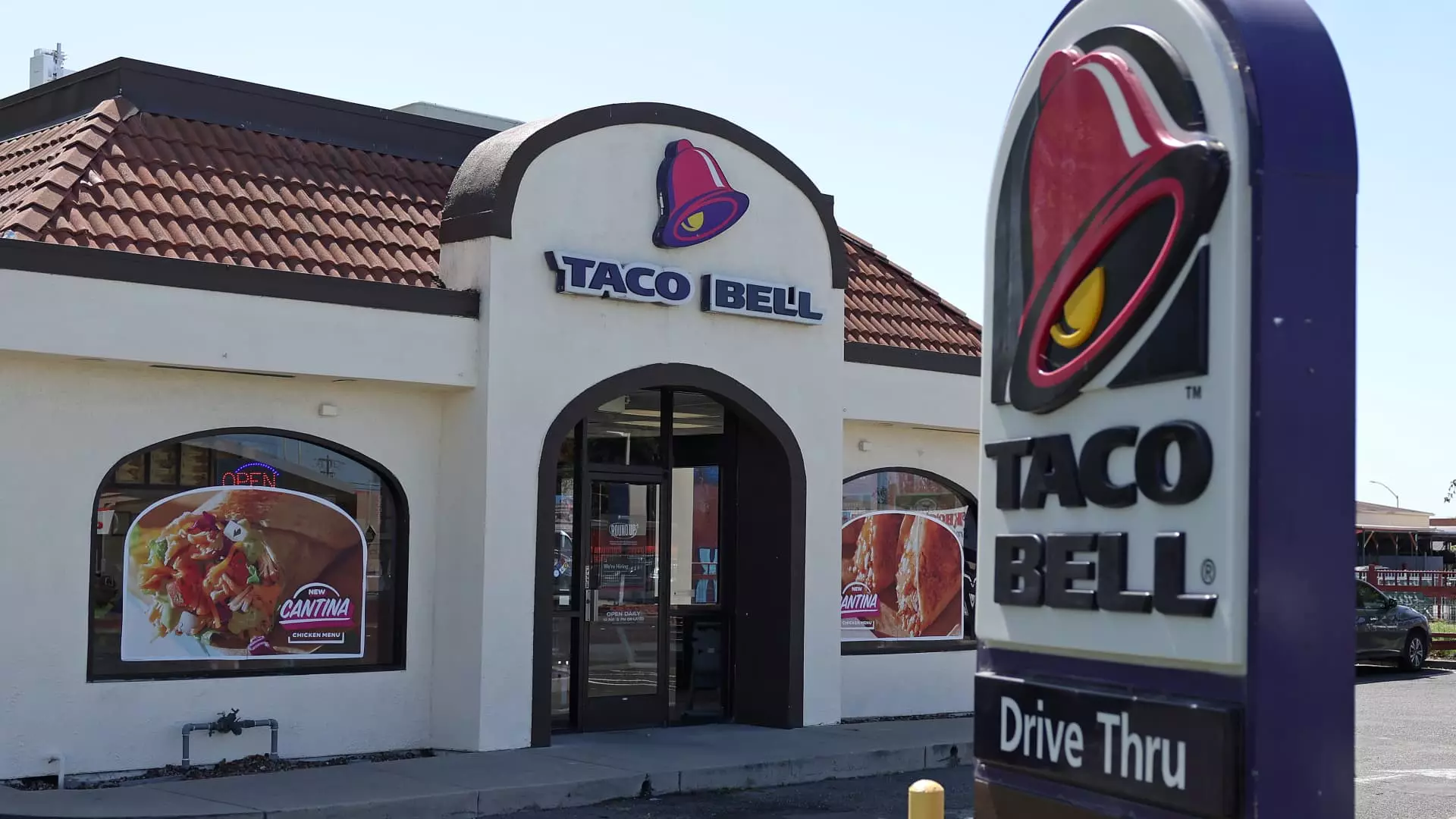In recent weeks, the food industry has been rocked by an E. coli outbreak that has not only impacted consumers but also triggered a wave of precautionary actions from major fast-food chains. The outbreak has been linked with McDonald’s Quarter Pounder burgers, prompting significant safety measures from competitors, including Yum Brands and Restaurant Brands International, the parent company of Taco Bell and Burger King, respectively. This incident not only raises public health concerns but also highlights the intricate interplay between food supply chains and safety protocols in the fast-food industry.
Yum Brands responded swiftly to the crisis by withdrawing fresh onions from selected Taco Bell, Pizza Hut, and KFC locations. A spokesperson for the company confirmed that they were taking these measures without being prompted by health authorities, emphasizing a proactive approach to consumer safety. This decision reflects a broader trend among fast-food restaurants: the inclination to act preemptively in the face of potential health risks, even in the absence of definitive evidence linking their products to the outbreak.
Conversely, Burger King revealed a more targeted approach, withdrawing onions from only 5% of its U.S. locations. The chain determined that the onions in question came from Taylor Farms, the same supplier implicated in the McDonald’s outbreak. Importantly, Burger King emphasized its commitment to using only whole, fresh onions, which are prepared at individual restaurants. This detail reinforces the brand’s dedication to transparency in its supply chain, yet raises additional questions about supplier accountability and food safety.
The implications of this outbreak are significant, not just for consumer health but also for the companies involved. Taylor Farms, the onion supplier, faces scrutiny as investigations unfold. The company’s inability to promptly address concerns raised by the media highlights a potential communication gap. The repercussions could extend beyond immediate financial losses, affecting long-term relationships with large-scale clients like McDonald’s, Taco Bell, and Burger King.
U.S. Foods—a supplier mentioned in the context of the outbreak—has also issued a recall for specific onion products from Taylor Farms. This interconnectedness of suppliers illustrates the complexity of food safety in a globalized market. When one entity in the supply chain is compromised, it can lead to widespread impact, demonstrating the urgent need for robust safety standards and vigilance throughout the food production process.
Health authorities have been actively investigating the outbreak that has resulted in one death and nearly fifty confirmed cases of E. coli across multiple states. As part of their response, the Centers for Disease Control and Prevention (CDC) has interviewed numerous individuals, establishing a connection to McDonald’s Quarter Pounder. This situation underscores the essential role that regulatory bodies play in monitoring food safety and responding to public health crises.
It’s worth noting that the nature of the investigation has narrowed down to two key ingredients in the affected hamburgers—the fresh beef patties and slivered onions. McDonald’s has taken the impactful step of removing Quarter Pounders from a fifth of its U.S. restaurants to mitigate risk, showcasing the critical balance that restaurants must strike between maintaining customer trust and ensuring public health.
This E. coli outbreak serves as a stark reminder of the inherent risks within the food supply chain. It emphasizes the need for fast-food companies to adopt stringent safety protocols and transparent measures to instill confidence in the consumer base. As seen with the responses from Yum Brands and Restaurant Brands International, a proactive stance can often mitigate the fallout from potential health crises.
Moving forward, it is crucial for all players in the food industry to collaborate more closely with suppliers and regulatory agencies, ensuring that food safety remains paramount. Only by fostering such cooperation can the industry begin to rebuild consumer trust and safeguard public health against similar outbreaks in the future. The events surrounding this outbreak illustrate not only the fragility of food safety systems but also the potential for resilient and adaptive responses within the fast-food landscape.

